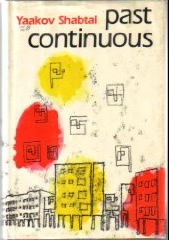![]()
Tonight I stumbled (for the first time, I’m ashamed to admit) upon The Second Pass. This fantastic lit site, edited by freelance writer and former Harper Collins editor John Williams, features a blog and an impressive range of features: essays, interviews, and reviews covering both new releases (Circulating) and backlist titles (Backlist). Another section, The Shelf, features reviewlets of recent titles, with links to and excerpts from other reviews across the bookosphere.
To celebrate the site’s first year anniversary, twelve contributors (including the editor) wrote pieces on their favorite out-of-print books. Williams introduces the combined result, “Tales of the Unread,” with this note:
When I launched this site a year ago today, one of my main goals was to approach reading the way that readers do, not necessarily the way that publishers and even many other reviews do. Publishers naturally want to tell you about what’s new or what’s evergreen. But most readers know the pleasure of somehow discovering and falling in love with a book that has fallen from view. And no status is farther from view than the dreaded “out of print.” I’ve learned from my years reading that countless terrific books have met this fate, and the Backlist section of this site is meant, in part, to shine light on just a few of them. I thought it would be appropriate to mark the first anniversary of The Second Pass by asking voracious readers to recommend their favorite out-of-print book. Their answers follow. I hope you enjoy them as much as I did.

An OP book recommended by Second Pass contributor Jacob Silverman
I enjoyed reading them immensely. Yes, they made me wistful — and angry about the limitations of a publishing industry (and public) that allows too many wonderful books to gather dust before a second printing. But these mini-essays also inspire hope: they are celebrations, not elegies. Even if most of these books remain OP, the desire to read, share, or even republish them is preserved and passed on thanks to pieces like these and the sites that publish them.
So head over to The Second Pass; I guarantee you’ll want to linger. You’ll want to click on everything. The site’s stylish design makes its first-rate content even more inviting.
Then wander back here to read Greg Schutz’s 2008 love letter to J. Mitchell Morse’s The Irrelevant English Teacher, which, like all of Morse’s books, remains out of print but never ceases to, in the author’s own favorite word, delight. Here’s a taste:
We must write well and read well, Morse insists—but more than this, we must cultivate these abilities in others. We must encourage more people to crack the spines of more books. “Thus far,” chides Morse, “we have failed . . . inasmuch as we have been too timid or too politic or too disdainful to answer the demagogues who call the liberating arts ‘the bullshit subjicks’.” On some level, consciously or not, we’ve equated irrelevancy with frivolity; we’ve forgotten what a serious thing literary joy can be, and how necessary. We need to remember this—and if others deny it, we must learn to insist.
“The liberating arts,” though: I like that. Again I’m reminded of Isaac Babel, who did not take the task of spreading joy lightly. His last words were, “I am asking for one thing—let me finish my work.”
When J. Mitchell Morse calls readers, writers, and teachers of the English language “irrelevant,” he is voicing not a lament, but a manifesto. Let’s embrace our irrelevancy. Let’s all finish our work.




